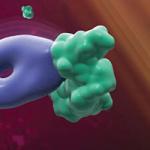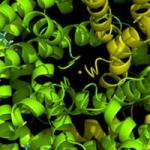
Masahiko Negishi, Ph.D.
Scientist Emeritus
Reproductive & Developmental Biology Laboratory / Pharmacogenetics Group
NIEHS
Research Topics
CAR and PXR are orphan members of the nuclear hormone receptor superfamily. My laboratory was the first to characterize CAR as a phenobarbital-activated receptor, leading to subsequent studies by numerous laboratories around the world to establish CAR and PXR as xenobiotic-activated transcription factors. They regulate a large set of genes that encode for enzymes and transporters involved in the metabolism and excretion of xenobiotics including therapeutic drugs. CAR and PXR are also found to regulate the hepatic metabolism of endobiotics such as glucose, fatty acids, bilirubin and bile acids. In addition, our recent studies have shown that CAR and PXR activate the GADD45 genes to trigger cell signals, such as the p38 and JNK pathways, altering the cell death, cycle and/or migration. Consequently, CAR and PXR have now been implicated in various diseases such as diabetes and liver injuries and tumors. As the scope of functions for CAR and PXR widen, the regulatory mechanism that we study has evolved from simple protein-DNA binding to complex protein-protein interactions. One of the critical questions which remain unanswered is the indirect activation mechanism by which various chemicals such as phenobarbital activate CAR without direct binding. Recently we found that the phosphorylation of a conserved threonine 38 inactivates and retains CAR in the cytoplasm and that phenobarbital de-phosphorylates this threonine to activate and translocate CAR into the nucleus. For this phosphorylation-mediated regulation of CAR, three signal molecules and one signal scaffold protein have now been indentified: PKC, ERK1/2, PP2A and RACK1 (receptor for activated C kinase 1). Our research objectives are to decipher the molecular mechanisms by which these signal molecules regulate phosphorylation/de-phosphorylation of CAR and how xenobitoics utilize this mechanism to activation of CAR.
Biography
Dr. Masahiko Negishi has been Principal Investigator heading the Pharmacogenetics section since 1983 at National Institute of Environmental Health Sciences, National Institute of Health and is member of the Senior Biomedical Research Service. He received his Doctor in Science in Biochemistry from the Institute of Protein Research at Osaka University in Japan.
Selected Publications
- Mutoh S, Sobhany M, Moore R, Perera L, Pedersen L, Sueyoshi T, Negishi M. Phenobarbital indirectly activates the constitutive active androstane receptor (CAR) by inhibition of epidermal growth factor receptor signaling. Sci Signal. 2013;6(274):ra31.
- Shizu R, Osabe M, Perera L, Moore R, Sueyoshi T, Negishi M. Phosphorylated Nuclear Receptor CAR Forms a Homodimer To Repress Its Constitutive Activity for Ligand Activation. Mol Cell Biol. 2017;37(10).
- Negishi M. Phenobarbital Meets Phosphorylation of Nuclear Receptors. Drug Metab Dispos. 2017;45(5):532-539.
- Lindberg RL, Negishi M. Alteration of mouse cytochrome P450coh substrate specificity by mutation of a single amino-acid residue. Nature. 1989;339(6226):632-4.
Related Scientific Focus Areas


Molecular Biology and Biochemistry
View additional Principal Investigators in Molecular Biology and Biochemistry



This page was last updated on Friday, April 12, 2013